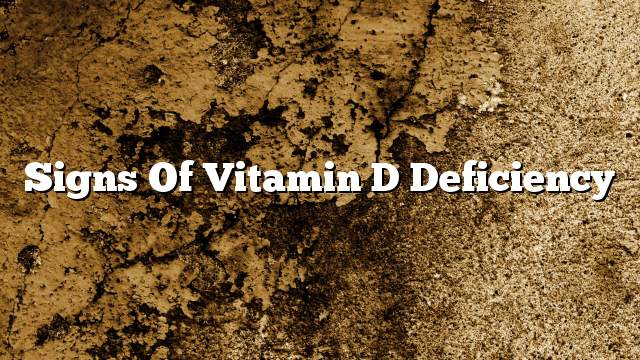Vitamin D
Vitamin D is one of the most important vitamins and minerals needed by the body to perform many vital processes and to be able to live normally. It is recommended that the body get certain amounts of this vitamin without increasing or decreasing. It causes many health problems, Heart disease, diabetes, psychological disorders, and loss of appetite. This deficiency is accompanied by many signs that warn and refer to, which we will talk about in detail and detailed in this article, it should be noted that the owners of dark skin more vulnerable to infection.
Signs of vitamin D deficiency
- A patient with vitamin D deficiency suffers from severe bone, muscle, and joint stiffness due to general weakness, and may lead to osteoporosis, especially in older individuals over the age of 40. Especially when colder weather and lower winter temperatures increase.
- The presence of sufficient amounts of vitamin D is one of the most important factors that improve the mood and help to psychological stability, because of the improvement of the level of neurotransmitter, which is scientifically called serotonin, and thus suffer the suffering of people from the feeling of depression and sadness, and reduces their morale and their turn to life significantly, They also suffer from severe mood swings that may lead them to cry for no apparent reason.
- People with a lack of digestive problems, and their bodies do not benefit from the conversion of materials acquired from the metabolism.
- This shortage of newborns is manifested in many developmental problems, such as disability, delayed walking, movement, teeth appearance, hair growth, bone marrow and rickets, and they have respiratory problems, especially at the top of it, as well as curvature Many of the legs obstruct the walking process, and women suffer from many difficulties during the delivery process.
- People suffering from permanent fatigue and fatigue, and inability to exercise daily activities and daily life, and lack of vitality and activity that accompanies the beginning of the morning, where the patient is awake from sleep tired.
- Significant weight imbalance, general loss of appetite, as well as numerous sleep disorders and marked and persistent insomnia.
- Increase the activity of cancer cells of various types throughout the body, especially breast cancer and prostate.
